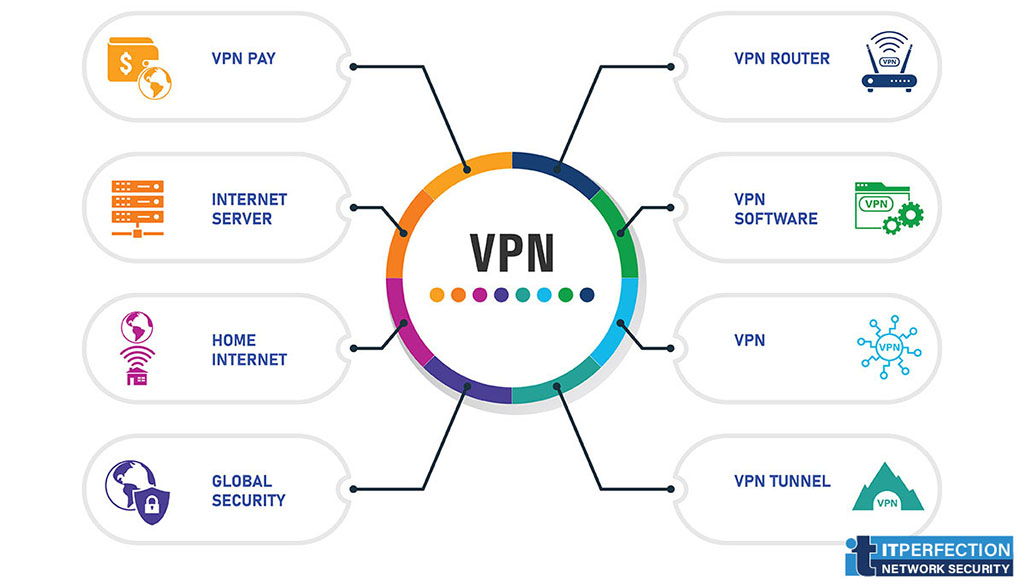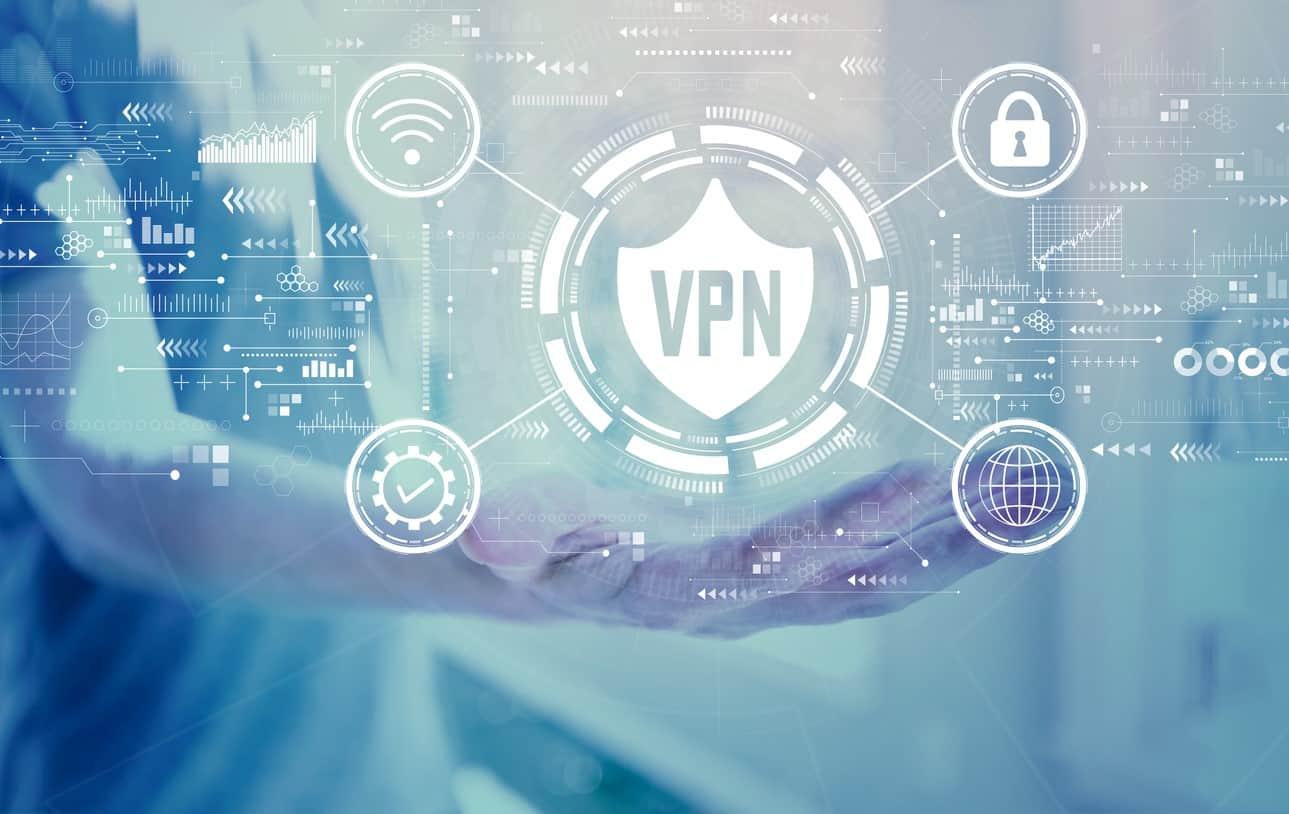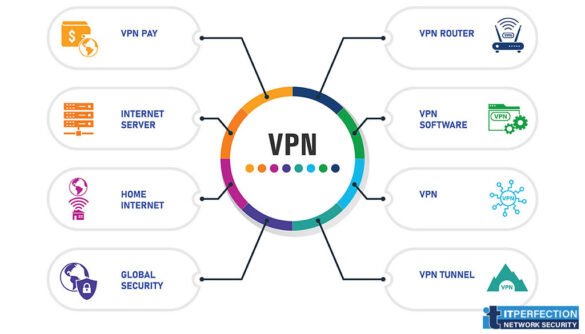
Understanding Virtual Private Network (VPN)
What is a VPN?
A Virtual Private Network, commonly known as a VPN, is a technology that creates a secure connection over a less secure network, such as the internet. It enables users to send and receive data while maintaining their privacy, making it especially valuable for individuals and businesses alike. Imagine a tunnel that protects your information from prying eyes; that’s essentially what a VPN does. Whether you’re browsing at a coffee shop or accessing sensitive company files from home, a VPN ensures your data remains private and secure.
How Does a VPN Work?
VPNs work by routing your internet connection through a server operated by the VPN provider. Here’s a simplified breakdown of the process:
- Encryption: Your online activities and data are encrypted, meaning that they are transformed into a coded format.
- Tunneling Protocols: These protocols create a secure tunnel for data packets, shielding them from potential interceptors.
- IP Masking: The VPN replaces your real IP address with one from the server, preventing websites and services from tracking your location.
The result? Enhanced security and anonymity when surfacing online. For instance, employees working from different locations can securely manage shared files without risk.
Types of VPNs
There are several types of VPNs catering to different needs:
- Remote Access VPN: Enables users to connect to a private network from a remote location, ideal for employees working from home.
- Site-to-Site VPN: Links entire networks to each other, commonly used by businesses with multiple branches.
- Mobile VPN: Designed for mobile devices, ensuring stable connections even when the network changes.
Understanding these types allows users to select the most appropriate solution for their needs. Selecting the right VPN can make all the difference in maintaining online security and privacy, a principle that our readers at TECHFACK take seriously.

Importance of VPN for Cybersecurity
Data Encryption and Security
One of the most vital benefits of using a VPN is data encryption. When you send information over the internet, it can be intercepted by malicious actors. However, with a VPN, your data is safeguarded through robust encryption methods. This means your personal details, online transactions, and sensitive communications become virtually unreadable to anyone without the right decryption keys. Picture this: you’re shopping online, and your credit card information is sent as a jumble of codes rather than visible numbers. That’s the kind of security a VPN offers, ensuring that your data remains private and secure.
Anonymity and Privacy Protection
In today’s digital world, your online footprint can be tracked, leading to privacy breaches. A VPN provides a layer of anonymity, masking your IP address so that you can browse without fear of being spied on. This is particularly essential when using public Wi-Fi, where countless threats lurk.
- Benefits of anonymity:
- Protects your identity during online transactions.
- Prevents targeted advertising based on your browsing habits.
- Guards against potential threats from cybercriminals.
Bypassing Geo-Restrictions
Have you ever encountered a website or service that’s unavailable in your region? A VPN allows you to bypass these geo-restrictions by routing your connection through servers in different locations.
For instance, if you’re traveling abroad and want to access your favorite streaming service, you can connect to a server in your home country and regain access. Not only does this enhance your entertainment options, but it also allows you to experience the internet as if you were physically present in another location.
In summary, employing a VPN can dramatically bolster your cybersecurity posture, giving the modern user essential tools for safe online navigation. At TECHFACK, we advocate for vigilant security measures in navigating the digital landscape.

Benefits of Using a VPN
Enhanced Security
Building on the importance of data security, using a VPN significantly enhances your online security measures. By encrypting your internet traffic, a VPN provides a formidable barrier against cyber threats like hacking, phishing, and data snooping. For instance, many professionals working remotely rely on VPNs to protect sensitive company data while using public networks.
- Key security features include:
- Encryption: Protects your data from eavesdroppers.
- Firewalls: Adds an extra layer of protection against various types of cyberattacks.
- Kill Switch: Disconnects your internet if the VPN connection drops, preventing data leaks.
Safe Remote Access
Remote work has become the norm for many professionals, and VPNs play a pivotal role in facilitating secure connections to company networks. Imagine accessing confidential files from the comfort of your home without worrying about security breaches. A VPN ensures that your connection is safe, making it possible to work efficiently and securely from anywhere.
- Benefits of safe remote access:
- Seamless connectivity to company resources.
- Improved data protection with secure channels.
- Flexibility for employees, leading to enhanced productivity.
Anonymity and Privacy
Finally, one of the standout advantages of a VPN is the anonymity it offers. By masking your IP address, you can browse the web without leaving a trace. This is especially beneficial for those who desire privacy when engaging in sensitive activities online, be it online shopping or accessing news articles.
- Key privacy benefits:
- Protection against unwanted tracking and profiling.
- Enhanced freedom to browse the internet without censorship.
- Reduced risk of being targeted by hackers.
In summary, employing a VPN not only safeguards your data but also fosters an environment of security and privacy, making it an essential tool for anyone navigating the digital landscape. At TECHFACK, we strongly advocate for utilizing such technologies for a safer online experience.

Risks and Limitations of VPNs
Logging Policies
While VPNs provide immense benefits for security and privacy, not all providers are created equal. One of the significant risks lies in logging policies. Some VPN services retain logs of user activities, which may compromise your privacy. Imagine trusting a provider with your data only to find out they’ve been storing your browsing history. It’s vital to choose a VPN that has a strict no-logs policy, ensuring that your activities remain confidential.
- Things to consider:
- Does the VPN provider publish an independent audit of its privacy policies?
- Are they transparent about how they handle data requests from governments?
Connection Speed
Another limitation is connection speed. While using a VPN can enhance security, it can also slow down your internet speed due to the added layer of encryption. Many users have experienced frustration when streaming their favorite shows or downloading files.
- Tips to mitigate speed issues:
- Choose a VPN with numerous server locations.
- Opt for servers that are geographically closer to optimize speed.
Legal Implications
Lastly, it’s essential to be aware of the legal implications of using a VPN. While VPNs can be used to bypass geo-restrictions, using them for unlawful activities can lead to severe consequences. For instance, accessing copyrighted content illegally can result in legal action.
- Consider the following:
- Research the laws surrounding VPN usage in your country.
- Be mindful of the activities you engage in while connected to a VPN.
In conclusion, while VPNs offer an array of benefits, being aware of their limitations can help users make informed decisions. As advocates for digital safety at TECHFACK, we encourage readers to weigh both the advantages and potential risks when utilizing VPN technology.

VPN Usage and Best Practices
Choosing a Reliable VPN Provider
Now that you’re familiar with the risks and limitations of VPNs, let’s talk about best practices for using them effectively. The first step is choosing a reliable VPN provider. Not all VPNs are created equal, and selecting one that prioritizes your privacy and security is crucial. When evaluating providers, consider factors such as:
- No-logs policy: Ensure they don’t keep records of your browsing activity.
- Server locations: More servers in diverse regions can offer better speed and access.
- Encryption standards: Look for providers that use strong encryption methods, like AES-256.
Doing a bit of research can save you from future headaches, as you want a service that genuinely supports your privacy goals rather than undermines them.
Securing Your VPN Connection
Once you’ve selected a VPN, securing your connection is essential. Here are some steps to consider:
- Enable the kill switch: This feature will immediately disconnect you from the internet if the VPN connection drops, preventing data leaks.
- Use multi-factor authentication: This adds an additional layer of security, making unauthorized access far more difficult.
Using VPNs for Different Purposes
Lastly, be mindful of how you use your VPN for various purposes. Different activities may require tailored settings. For instance:
- Streaming: If you’re looking to access geo-blocked content, connect to servers optimized for streaming.
- Online gaming: Choose a server with low latency for a smoother experience.
- Working remotely: Utilize servers in your organization’s country to ensure seamless access to internal resources.
In summary, effective VPN usage hinges on selecting the right provider, securing your connection properly, and utilizing the VPN for its intended purposes. At TECHFACK, we encourage our readers to take these best practices to heart for a safer and more efficient internet experience.

VPNs in the Corporate Environment
Securing Business Data
As organizations continue to adapt to the digital landscape, VPNs have become essential tools for securing business data. In a world where data breaches are increasingly common, using a VPN to encrypt all traffic between employees and company servers can significantly mitigate risks. Imagine a scenario where sensitive financial information is transmitted between remote employees and headquarters. A VPN ensures that this data is shielded from potential eavesdroppers, providing peace of mind for management and stakeholders alike.
- Key benefits for securing business data:
- Encryption: Protects sensitive data from interception.
- Access Control: Enables specific user permissions for sensitive resources.
- Threat Prevention: Reduces the risk of data breaches by creating secure connections.
Remote Work and VPNs
The rise of remote work has been transformative for many businesses, and VPNs play a vital role in facilitating this shift. Employees can confidently connect to the company network from any location, ensuring that access to proprietary systems and data remains secure. For example, during the pandemic, many companies relied on VPNs to allow their staff to work from home without compromising on security. Remote access solutions have essentially become a lifeline for operational continuity.
- Benefits for remote work:
- Secure access to company resources from any geographic location.
- Improved collaboration by allowing team members to work together securely, regardless of where they are.
VPNs for Business Expansion
Finally, as companies scale and expand into new markets, VPNs can support their growth initiatives. By offering secure connections to new geographical areas, businesses can maintain consistency while entering new markets. This means that whether a company is opening a new office across the globe or onboarding international clients, a VPN ensures that data transmissions remain encrypted and secure.
- Expansion advantages:
- Flexible access to new regions without compromising security.
- Facilitates global collaboration, enabling teams to work together seamlessly.
In essence, VPNs have become indispensable in the corporate environment, enhancing not only data security but also supporting the evolving landscape of remote work and business expansion. At TECHFACK, we recognize the importance of leveraging these tools effectively to foster a secure working environment.

Future Trends in VPN Technology
Emerging Encryption Protocols
As we advance into an era dominated by digital interactions, the quest for stronger security measures continues. One of the most notable trends in VPN technology is the development of emerging encryption protocols. Innovations such as WireGuard are making headlines for their ability to offer faster connections and stronger security without compromising performance. Imagine this: a protocol that not only encrypts your data efficiently but also significantly decreases latency—this is what WireGuard and similar technologies promise to deliver.
- Key features of new protocols:
- Speed: Optimized for high-speed internet connections.
- Simplicity: Easier configuration and maintenance.
- Security: Incorporation of advanced cryptographic principles.
Innovations in VPN Services
In addition to encryption advancements, the VPN services themselves are evolving. Many providers are now offering features like split tunneling, where users can decide which applications use the VPN and which connect directly to the internet. This flexibility is particularly beneficial for those who want to balance security with bandwidth efficiency. For instance, an employee could run a secure company application through the VPN while still accessing local services like online banking without disruption.
- Innovative features to watch:
- Multi-hop connections for added layers of security.
- Kill switch advancements that are more reliable.
Impact of AI on VPN Development
Finally, the integration of artificial intelligence (AI) in VPN development holds exciting prospects. AI can analyze user behavior to enhance security protocols, identify potential threats in real-time, and even offer personalized suggestions based on usage patterns. For example, if a user frequently visits specific sites, AI could help in predicting vulnerabilities and suggest more robust security measures.
- Potential benefits of AI in VPNs:
- Real-time threat detection and response.
- Optimized server selection for improved performance.
In conclusion, the future of VPN technology looks promising, evolving to meet the demands of an increasingly connected world. By keeping an eye on these emerging trends, users can ensure that their online activities remain secure and efficient. At TECHFACK, we’re committed to staying informed about these advancements, helping our readers make educated decisions about their digital security.

